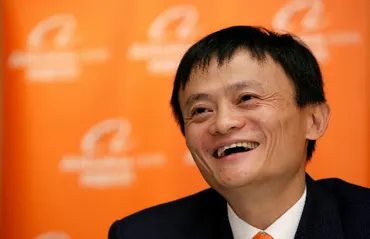Paytm Mall is India's latest unicorn, with funding from Alibaba and SAIF Partners
Alibaba and SAIF Partners have put in $177 million and $23 million respectively into Paytm's e-commerce arm

India has a new unicorn in Paytm’s e-commerce arm. According to the latest reports, Paytm’s existing investors Alibaba and SAIF Partners have put in $177 million and $23 million respectively into Paytm Mall. Paytm has confirmed the news to YourStory, although the company has not released an official statement on the development yet. Business Standard has quoted the filing from Registrar of Companies from this week that states that the Singapore arm of China-based Alibaba group has made the investment.
Announcement of the launch of Paytm Mall’s app on Android a few days ago was widely seen as Alibaba’s first major move in the Indian market with Paytm. Alibaba Group, which holds 40-percent stake in Paytm, also holds a three-percent stake in online marketplace Snapdeal. Sources had earlier told YourStory that Alibaba would enter the scene by merging Snapdeal and Paytm's e-commerce arm by Diwali. It will, however, wait to see how profitable the core model can be.
Unique position
Paytm has now become the only company with both payments and e-commerce businesses to be valued at billion dollars as separate entities. India’s unicorn club already has Flipkart, Snapdeal, ShopClues, Paytm Payments, Ola, InMobi, Mu Sigma, Zomato, Quikr, and Hike. Paytm’s payments arm raised Rs 400 crore from Taiwan-based investor Mediatek in August 2016, which resulted in its valuation reaching $5 billion.
Paytm also has the unique advantage of being able to accessing Alibaba’s larger ecosystem – all of its acquisitions across the world, including e-commerce company Lazada Group in Southeast Asia, and Chinese-government-owned Suning Commerce – which can help Paytm expand beyond India in future.

India’s e-commerce market leader Flipkart has been reported to be in talks to raise more than $1 billion, aiming to make profit. Recently, online marketplace Snapdeal had had to fire half its workforce to stay in the game and aim for profitability in two years.
Newborn, and worth a billion dollars
Paytm Mall claims to have more than 1,40,000 sellers and 68 million SKUs. Like most horizontal marketplaces, it also sells mobiles, electronics, fashion, groceries etc. Paytm Mall will offer consumers combined features of the 'mall' and 'bazaar' concepts. It claims that only trusted sellers passing strict quality and eligibility criteria will be allowed on the 'mall'. All products listed on the mall will also go through Paytm-certified warehouse and shipping channels.
Paytm, which is set to take the battle to the other e-commerce biggies, already has 17 fulfillment centres and 40 courier partners across India.
According to the statement from the company, Paytm Mall will also launch an upgraded version of the Paytm Seller app in seven regional languages. Curiously, the name 'Paytm Mall' itself is strikingly similar to 'Tmall', Alibaba’s B2C e-commerce arm, which holds more than 50 percent share of online retail in China.
According to RedSeer Consulting, India’s e-commerce market will hit $100 billion by 2020. With five of its 11 unicorns now from e-commerce, the competition is bound to get fiercer every day.







